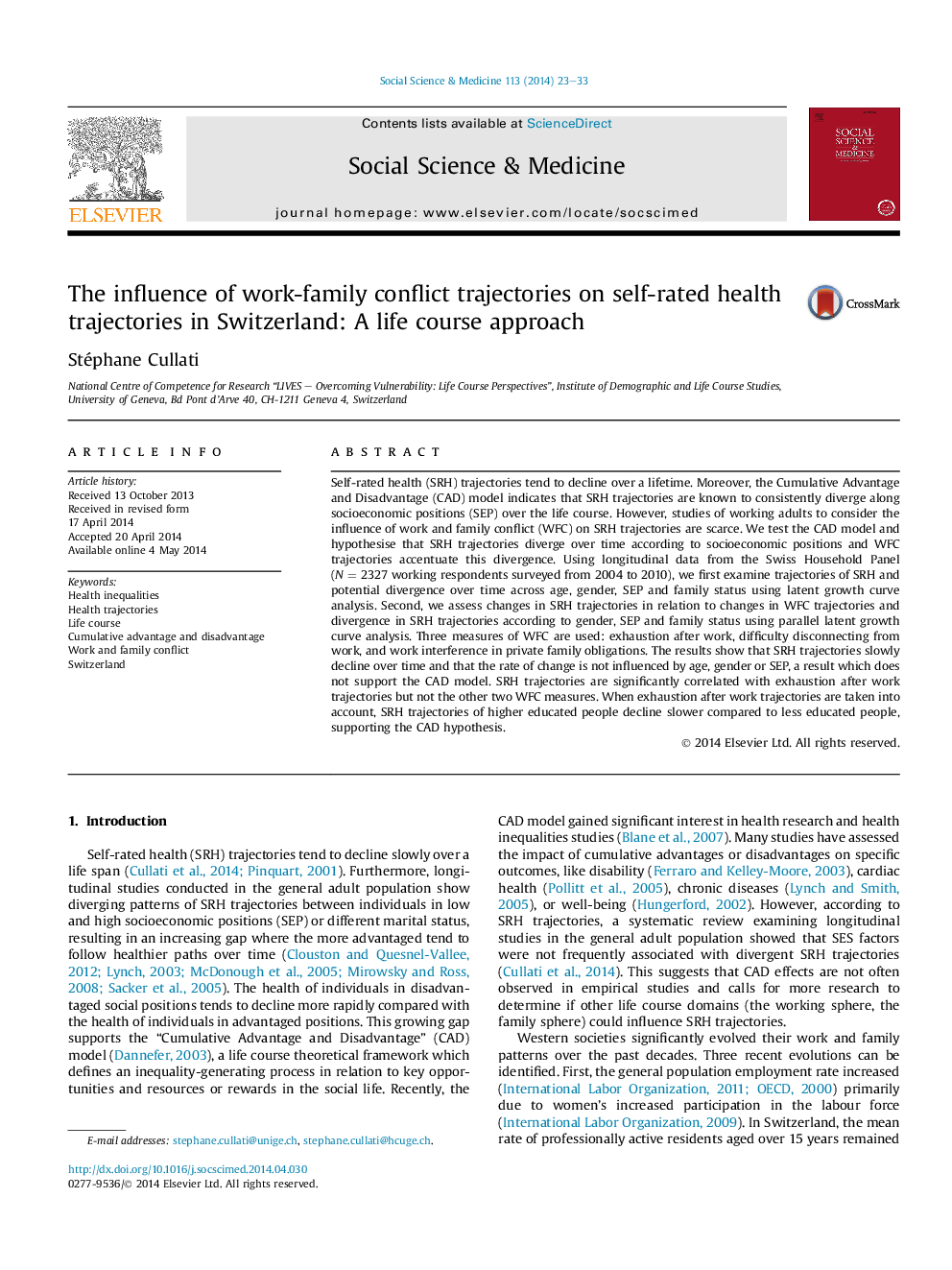| کد مقاله | کد نشریه | سال انتشار | مقاله انگلیسی | نسخه تمام متن |
|---|---|---|---|---|
| 7334776 | 1476055 | 2014 | 11 صفحه PDF | دانلود رایگان |
عنوان انگلیسی مقاله ISI
The influence of work-family conflict trajectories on self-rated health trajectories in Switzerland: A life course approach
ترجمه فارسی عنوان
تأثیر مسیرهای درگیری خانوادگی در خانواده در مسیرهای سلامتی خود در سوئیس: رویکرد زندگی دوره
دانلود مقاله + سفارش ترجمه
دانلود مقاله ISI انگلیسی
رایگان برای ایرانیان
کلمات کلیدی
نابرابری های بهداشتی، مسیرهای بهداشتی، دوره زندگی، مزیت و مزیت تجمعی، تعارض کار و خانواده، سوئیس،
موضوعات مرتبط
علوم پزشکی و سلامت
پزشکی و دندانپزشکی
سیاست های بهداشت و سلامت عمومی
چکیده انگلیسی
Self-rated health (SRH) trajectories tend to decline over a lifetime. Moreover, the Cumulative Advantage and Disadvantage (CAD) model indicates that SRH trajectories are known to consistently diverge along socioeconomic positions (SEP) over the life course. However, studies of working adults to consider the influence of work and family conflict (WFC) on SRH trajectories are scarce. We test the CAD model and hypothesise that SRH trajectories diverge over time according to socioeconomic positions and WFC trajectories accentuate this divergence. Using longitudinal data from the Swiss Household Panel (NÂ =Â 2327 working respondents surveyed from 2004 to 2010), we first examine trajectories of SRH and potential divergence over time across age, gender, SEP and family status using latent growth curve analysis. Second, we assess changes in SRH trajectories in relation to changes in WFC trajectories and divergence in SRH trajectories according to gender, SEP and family status using parallel latent growth curve analysis. Three measures of WFC are used: exhaustion after work, difficulty disconnecting from work, and work interference in private family obligations. The results show that SRH trajectories slowly decline over time and that the rate of change is not influenced by age, gender or SEP, a result which does not support the CAD model. SRH trajectories are significantly correlated with exhaustion after work trajectories but not the other two WFC measures. When exhaustion after work trajectories are taken into account, SRH trajectories of higher educated people decline slower compared to less educated people, supporting the CAD hypothesis.
ناشر
Database: Elsevier - ScienceDirect (ساینس دایرکت)
Journal: Social Science & Medicine - Volume 113, July 2014, Pages 23-33
Journal: Social Science & Medicine - Volume 113, July 2014, Pages 23-33
نویسندگان
Stéphane Cullati,
